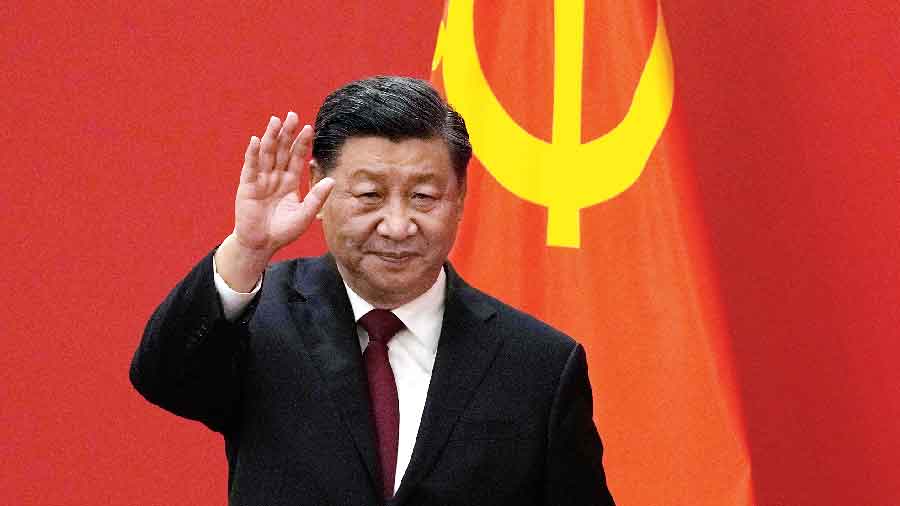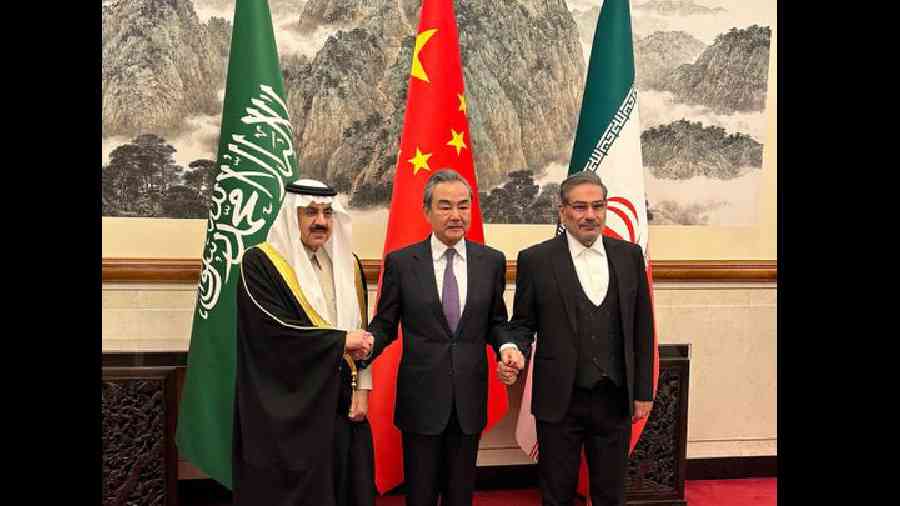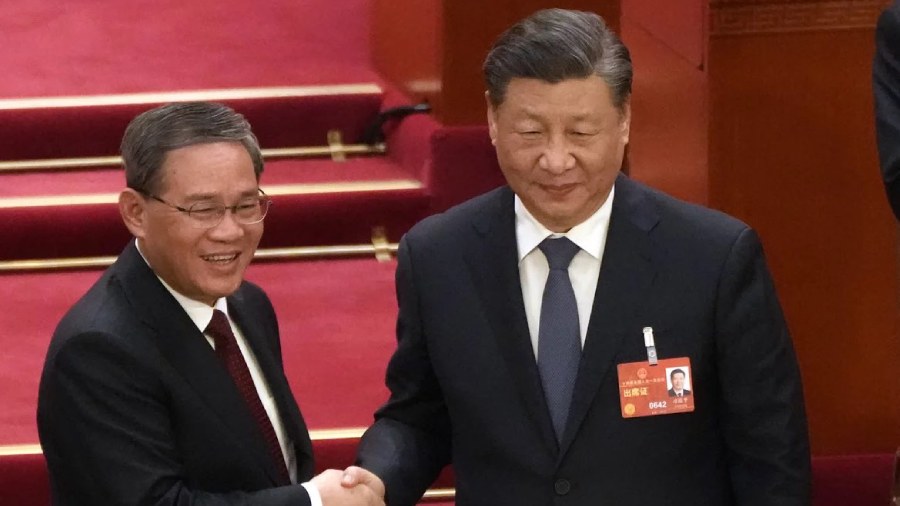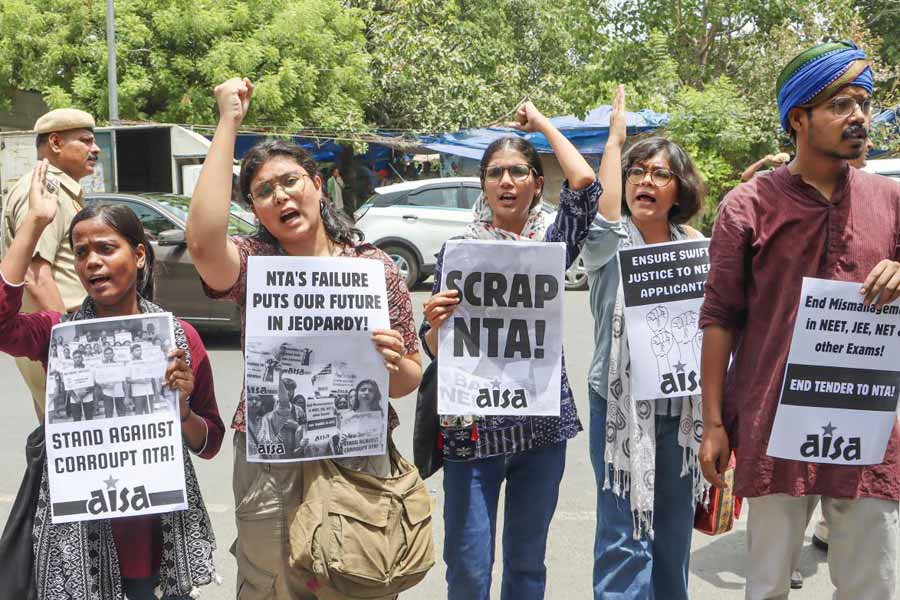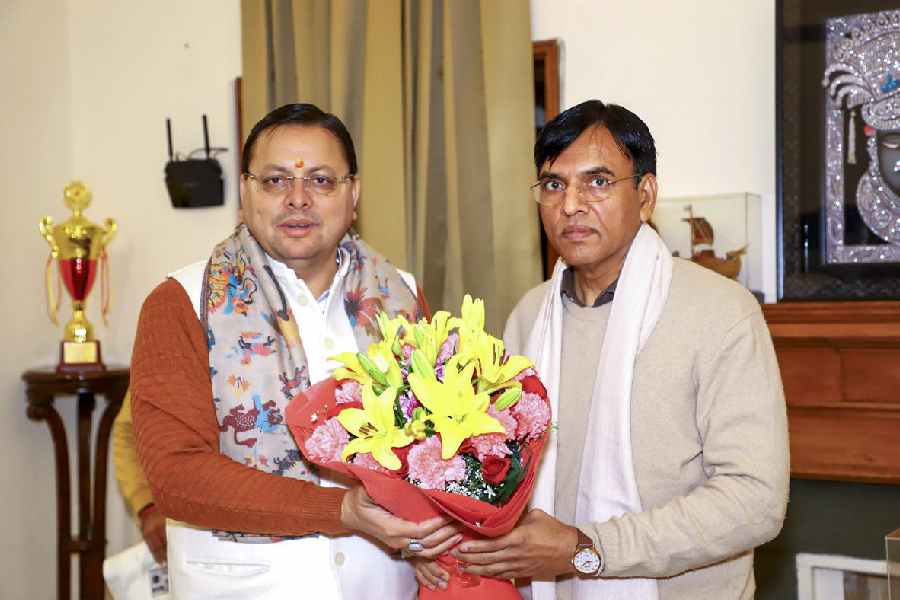Chinese President Xi Jinping Monday vowed to build the military into a “Great Wall of steel” to protect the country's sovereignty and sought a bigger role for Beijing in global affairs, days after brokering a Saudi Arabia-Iran deal, regarded as a diplomatic coup.
Speaking for the first time in his precedent-breaking third term as head of state, Xi called on the nation to uphold the leadership of the ruling Communist Party of China (CPC) headed by him.
Xi, 69, also vowed to build the military into a “Great Wall of Steel” to protect China’s sovereignty, amidst growing tensions with the US and some neighbouring countries.
Speaking at the conclusion of the annual session of the Chinese legislature, the National People's Congress (NPC), Xi stressed upholding the leadership of the CPC and the centralised, unified leadership of the CPC Central Committee, the main policy body of the party.
Xi is regarded as the ‘core leader’ of the party very much like the party founder Mao Zedong.
He was endorsed by the rubber-stamp Parliament last week as the President and head of the Central Military Commission (CMC) the high command of the Chinese military, marking the beginning of his new five-year term.
He was elected as the head of the CPC for an unprecedented third term in October last year, the only leader to have more than two five-year terms after Mao. He was the only leader to have a third five-year term while all his predecessors retired after two five-year terms.
In his speech at the NPC closing ceremony attended by about 3,000 legislators Xi said, China will play an active part in the reform and development of the global governance system to advance the implementation of his initiatives the Global Development Initiative (GDI) and the Global Security Initiative (GSI) which aims to expand Beijing’s diplomatic role in the world.
His comments came in the backdrop of China clinching a Saudi-Iran deal, regarded as a diplomatic coup, to end their years of hostilities and restore diplomatic ties.
Though Islamic countries, the Sunni majority Saudi Arabia and Shia dominated Iran had acrimonious relations over religious differences and divergent strategic perceptions.
As announced by China, Saudi Arabia, and Iran on last Friday, have reached a deal that includes the agreement to resume diplomatic relations and reopen embassies and missions within two months, after talks in Beijing from March 6 to 10 ending seven year-long differences.
The deal was regarded as a major achievement for China in expanding its global outreach and countering the US influence, especially in the Middle East.
In his speech on Monday, Xi also called for efforts to advance the modernisation of national defence and armed forces on all fronts, and build the people's armed forces into a "Great Wall of steel" that is capable of effectively safeguarding national sovereignty, security and development interests.
"Security is the bedrock of development, while stability is a prerequisite for prosperity," Xi was quoted as saying by the state-run Xinhua news agency.
Last week Xi said, “western countries, led by the United States, have implemented all-round containment and suppression of China, which has brought unprecedented severe challenges to the country’s development.” Xi while speaking in the Parliament last Monday said that the external environment for the country’s development changed rapidly, and there was a significant rise in uncertainty and unpredictable factors.
He said in the future “the risks and challenges we face will only increase and become more severe”, apparently referring to the crackdown by the US and EU on China’s high-tech firms like Huawei and TikTok.
A key agenda for the legislative session is to provide a strategy to cut reliance on the US. As part of that plan, the central government proposed to raise R& D spending by 2 per cent in 2023 to 328 billion yuan (USD 47 billion).
Also on March 5, China hiked its defence budget for the 8th consecutive year with a 7.2 per cent increase to USD 225 billion.
In his speech on Monday, Xi underscored the need to pursue a holistic approach to national security, improve the national security system, strengthen China's capacity for safeguarding national security, enhance public safety governance, improve the social governance system, and safeguard China's new development pattern with a new security architecture.
On Taiwan, which China claims is part of it, Xi said China is actively promoting the peaceful development of cross-Strait relations, resolutely opposing external interference and "Taiwan independence" separatist activities, and firmly advancing the process of national reunification.
He also promised to continue the one-country two system formula to develop Hong Kong despite the crackdown to subdue pro-independence forces in the former British colony under China’s new security law.
Stressing that China will make concrete efforts to advance high-standard opening up, Xi said the country will not only leverage global markets and resources for its own development but also promote the development of the whole world.
He also called for building China into a great modern socialist country and advancing national rejuvenation.
From this day forward to the mid-21st century, the central task of the entire CPC, and all Chinese people will be to build China into a great modern socialist country in all respects and to advance the rejuvenation of the Chinese nation on all fronts, Xi said.
"The relay baton of building a great modern socialist country and advancing national rejuvenation has been historically passed on to our generation," he said.
Except for the headline, this story has not been edited by The Telegraph Online staff and has been published from a syndicated feed.

